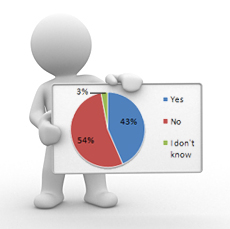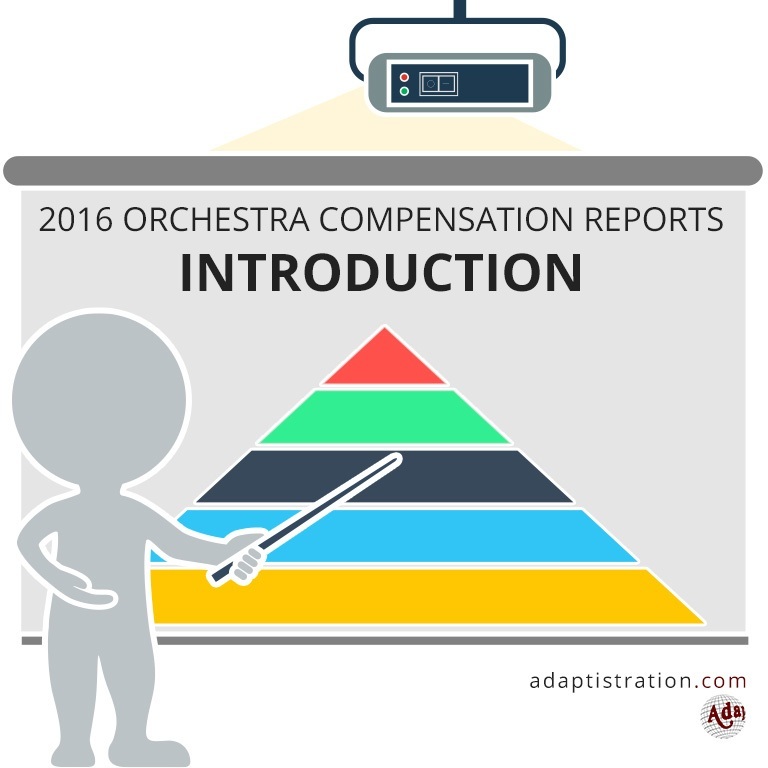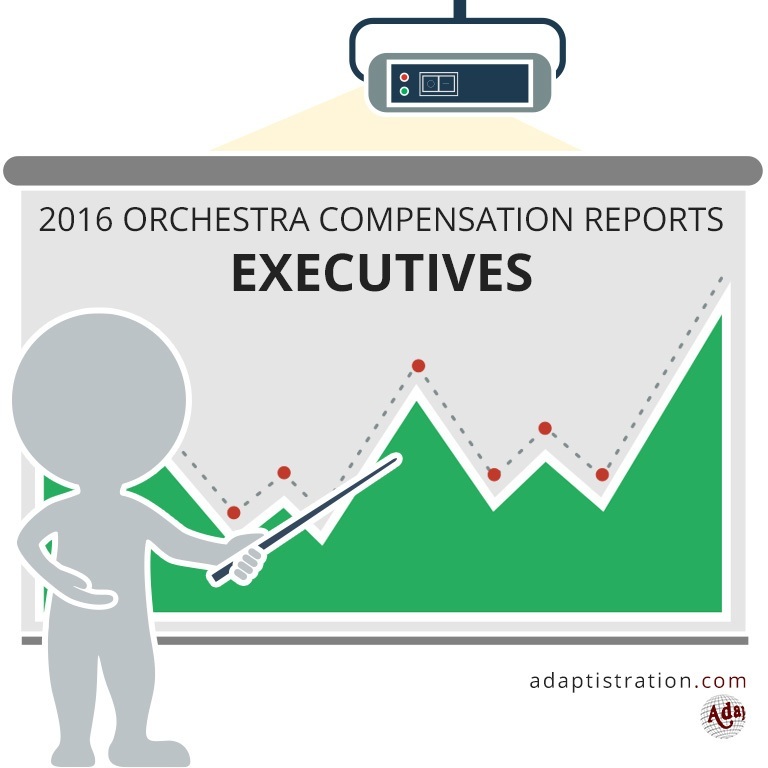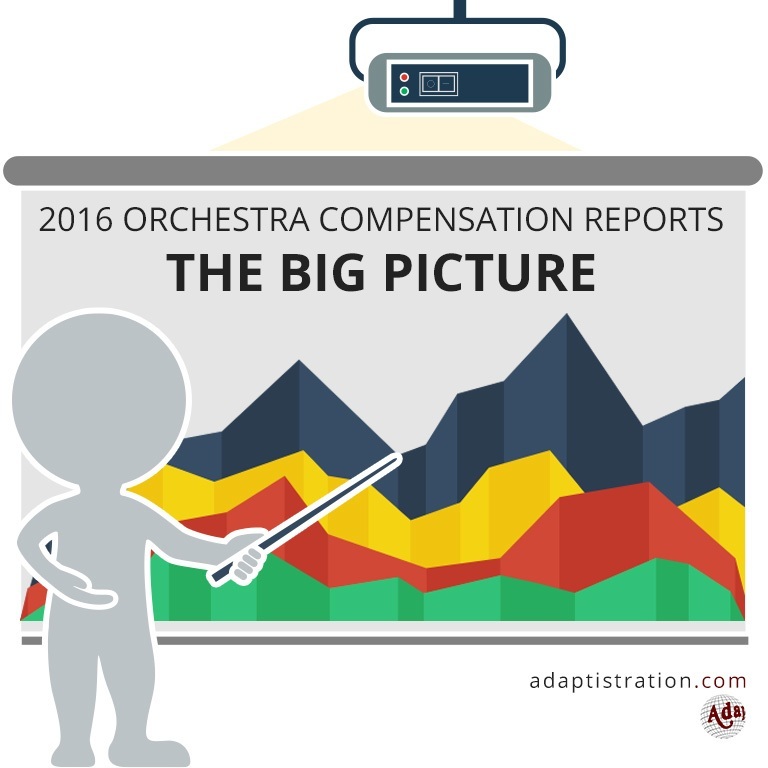On 3/19/2009, readers were asked to answer the question “Should an orchestra administration be expected to provide special compensation to musicians for recording marketing/education/outreach material?” At just over 200 responses the results don’t provide a clear majority opinion but they do provide additional insight into this topic…

Throughout the first several days, the results hovered around a 50/50 split in opinion but toward the end, those indicating musicians shouldn’t be compensated for marketing/education/outreach oriented material pulled ahead by a small margin. Those unsure about the issue occupied a very small percentage indicating there isn’t much indecisiveness on this issue. When examining results in more detail, It is worth pointing out that a third of those voting “no” originated from an IP address registered to a professional orchestra but none of those voting “yes” or “I don’t know” came from an orchestra address. Since orchestra musicians aren’t typically provided with employee internet accounts, it is likely that those “no” votes are from orchestra managers.
If anything, these additional details provide a glimpse into just how entrenched stakeholder positions are on the matter but one positive indication is many of the direct email messages submitted in response to this issue point to a sincere interest in exploring options. As one reader indicated in a public comment, the discussion should focus on how to make these things happen instead of forcing the all or nothing scenarios.
Ultimately, this returns to the issue uncovered by The Oregonian music critic, David Stabler, who wanted to write about a new composition and include some audio clips from Oregon Symphony orchestra musicians in the final online product. Stabler’s conundrum is an excellent representative example of the unexplored territory defined by advancements in technology awaiting the sort of scrutiny and negotiation that will eventually lead to new compensation agreements. In turn, those agreements can be used as precedent for other organizations to use when approaching similar projects.
If the poll results are any indication, pushing the all-or-nothing scenarios of “give it up any and every time we ask for no additional payments” and “use traditional compensation rules regardless of use” will likely result in solutions coming later than sooner.



Why should musicians be paid to produce something that can’t otherwise be sold to generate income? Especially when that product, which doesn’t cost them an additional minute of preparation or work, will be used to promote the orchestra. The nonsense logic that says otherwise is one of the many reasons I’m not in the business anymore.
Then by that line of reasoning, shouldn’t the vast majority of performing arts organizations should cease to exist? Anyone in the business already knows that earned income isn’t enough to cover expenses so why does that reasoning not apply to all facets of an organization to one degree or another? As to whether or not is costs musicians and additional time to prepare for a recording, I think it’s best to have a working musician respond to that (hopefully someone out there will take the time to do so).
Jumping in here
Marketing = Outreach sometimes and like anything else, there should be an open discussion at all times any time an opportunity involving broadcasting, recording etc.. comes up.
I will produce sound clips and short excerpts to promote the orchestra in a nod to new media practices. You go onto amazon or itunes and there is an excerpt of everything, a try before you buy if you will and I don’t believe there is a extra compensation for the author/composer for each click on the excerpt. I see sound clips and excerpts of the orchestra in the same regard and have heard things like “wow I had no idea you guys were that good”, I’m going to buy a ticket. On the other side of the coin, these same sound clips will allow a season ticket holder who may have missed the concert (and the one broadcast) a chance to at least hear something from the concert, and whilst it does not replace the real thing there is certainly much gratitude for the customer service and accessibility we provide which hopefully is one more reason for that person renewing or even potentially donating. For 5 straight seasons (including this one) we have had season and single ticket sales revenue increases and with that we have also had 5 straight seasons of per service increases for the musicians (40% over this period on average). Not that they are always directly related because donations do play a major part in an overall budget, but nevertheless my assertion could be shot down if we provided all these excerpts and there was nothing on the back end for the musicians in terms of what they receive for their work.
Now for commercial releases, yes there needs to be an additional compensation deal arranged, and I reject the argument that these payments have killed classical music recording. Lack of demand has killed it, not cost. For education, there is so much available for such minimal cost, or completely free that, it has in my view become less of an issue because you don’t need to make special recordings anymore (at least we don’t have to).
The bottom line: no matter what a recording or broadcast is used for, there has to be an open line of communication between the management and musicians so that uses can be determined and to discuss if further compensation is appropriate. Having this in place as a practice will help prevent future abuse in the name of “precedent” or “past practices” which usually are determined by managements. We have been approached by our local cable station to potentially broadcast some of our concerts for instance. My first port of call was the orchestra committee to discuss it, and we will continue discussions and they will vote. This is not cumbersome at all in my view. It would be however if we arbitrarily decided to do it without their buy in and had a dispute on our hands!
Personally, to put my cards on the table, my idea is for a grace period. If something comes up mid season and budgets are tight, as long as there is no additional income coming in as a result of a broadcast opportunity let’s do something as a trial with a cap, again mutually agreed upon. I feel very lucky that I have an orchestra that looks at things in a very objective way, but I think every orchestra would if they were given the opportunity to speak and if they were trusted!
“As to whether or not is costs musicians and additional time to prepare for a recording, I think it’s best to have a working musician respond to that (hopefully someone out there will take the time to do so).”
There’s no definitive answer; it all depends on the circumstances. If the orchestra is used to having its performances recorded (as is mine), and the recording in question is taken from one of those performances, then the answer is that the recording involved no extra work, time or stress for the musicians. In situations different from ours, the answer would be different, to the extent of the difference (to quote Abe Lincoln).
Drew, why argue in such generalities? The simple fact of the matter is that, for any orchestra smaller than, say, the big 10, no recording has any value for the generation of net income. (I’m not sure that even applies to the big 10 any more.) And that’s why so little recording is done. However, recordings do have a real value for marketing and educational purposes–specifically to expand audiences and increase donations. My point is that recording should be seen by all involved (again, as with Robert’s example, when no additional work is involved for the musician) as simply a tool (just like photos) to help the organization raise its profile and expand audiences. Ultimately, the musicians will benefit.
Can you point to any data that supports the notion that recordings of the type and quality you’re referring to expand audiences and increase donations? I’m not aware of any study or even single orchestra marketing data that supports this.
Furthermore, why can’t orchestras outside of the top 10 size budget ensembles benefit from recording models like those being used by the CSO? Will it generate income levels like those from decades ago? Not likely but I certainly wouldn’t go so far as to say they offer no value for generating income. Instead, focusing efforts on duplicating these models while simultaneously finding uses for marketing and educational purposes seems to be a more productive direction then tossing in the towel and demanding that all recording be done without compensation (and likely dubious quality standards).
I’ll use Robert’s example as well. In order to measure benefit, any organization will have to consider infrastructure. If the infrastructure is already in place to produce quality recordings without much along the way of added cost, then it will be easier for those groups to find the best uses for recordings. Budget size doesn’t enter into the picture as much as allocating resources. Case in point, when Nashville designed their new hall they took those considerations to the drawing board (right down to designing special equipment). As a result, they have an excellent infrastructure that allows them to maximize recordings options while minimizing production costs. The last time I checked, Nashville wasn’t a top 10 budget size orchestra – just a group with good managers.
I said generating “net” income. Everyone knows recording doesn’t come close to breaking even.
As for its value, I’m stating my own opinion. Of course, there’s no real data out there about its value in terms of marketing and education because no one’s been able to use recordings much to find out. But, let me give you an example. What if every concertgoer was given a card with a code on it as they left the concert hall (or maybe the code is printed on the ticket). The code would allow the customer to go to a website several days later (to allow for editing and uploading time) and download the work or works for that concert? And it would be free (in essence, it would be marketed as part of the purchase price of the ticket.) All the technology exists to do this, and I’m firmly convinced that it would expand audiences. But what orchestra would be willing to let management do this for no additional compensation? This is just one example. The point being that if compensation was off the table, musicians and managers might come up with dozens of ways to use recording, downloading, etc., to build audiences.
Well, if you take compensation off the table, I’m sure a number of projects become more feasible than before but that doesn’t mean it is practical or appropriate.
As for whether or not the idea you use as an example would expand audiences, I don’t know. It sounds more like a tool designed to retain audiences as opposed to expand. Sure, the technology exists but what about the infrastructure? Plus we’re not talking about clips for promotional use any longer but tracks of full movements and pieces. Once you move the discussion in that direction, I think it makes more sense to look at efforts like those at Chicago and Milwaukee.
Finally, flooding the market with free product doesn’t necessarily increase value. Look at one of the predominant arguments from managers against comp tickets – it undervalues the concert experience. Looking at orchestra recordings as a gimmicky “added value” component doesn’t do much to benefit the business or the musicianship.
As for net income, that is exactly what I was referring to.
What is practical or appropriate about being forced to pay musicians additional compensation for no additional work when the product is used to generate more support of the organization?
As for my example. The infrastructure is typically in place already, if the orchestra is recording for broadcast. And there are several available options for uploading and downloading music that are not expensive at all.
It makes sense to look at Chicago and Milwaukee if you’re larger, but what about the dozens of smaller orchestras? What are they supposed to do?
And it’s not flooding the market. It’s adding value to the purchase price of a ticket. How many times have you walked away from a concert wishing that you had a recording of what you just heard? This makes that possible. And what’s gimmicky about it? It’s no more a gimmick than a radio broadcast, and it has more value for the ticketbuyer.
This is all academic. I might be right, you might be right, but we’ll never know because musicians will never be willing to forego compensation in the way I’m talking about.
Finally, given all expenses, recording, pressing, musicians fees, etc., I’ll wager there hasn’t been a recording to earn a net profit in the past 5 years outside of the major orchestras. (And if the majors is what you’re referring to, let’s remember that the recording contracts are tilted toward major scales, and even the limited pressing agreement is too expensive to allow for a likely profit.)
I’ll take you up on that wager 😉
Seriously though, I do believe what your example at the beginning of this thread would certainly flood the market with a devalued musical product and it would almost certainly lead to half-assed recordings of dubious quality. Furthermore, even with your added clarification, it still strikes me as a gimmick to sell a few extra tickets. Furthermore, musicians are compensated for radio broadcasts so if the idea is similar to that, why not pay the musicians the same scale as a radio broadcast?
I also believe it lowers the value of an individual concert. One of the primary differences between a live concert and a recording is the former is creating music that only exists in that moment of time. It’s special because that’s the only time it will exist and the value is in experiencing it live.
Finally, I suppose I’m confused here but what exactly are you referring to when you mentioned musicians foregoing compensation in a way you’re talking about?
So, let’s ask your readers. Who out there, in the last 5 years, has produced an album of orchestral music (not including a big name soloist, which would skew the numbers) that, after paying all related expenses for musicians, recording, packaging and distribution, and marketing, sold enough CDs or downloads of that album to recoup all of that expense and then some?
Musicians aren’t always compensated for radio broadcast. They weren’t in my orchestra; the CBA allowed for a one-time broadcast for no fee. As for quality, these recordings would be the same quality as the broadcasts. Admittedly, not all broadcast recordings are great, but if they’re good enough for one purpose, why not the other?
So, let’s call it a gimmick. But I don’t see the difference between this and a music magazine offering a free CD, or Starbucks offering free iTunes songs once a week. What the music industry needs is more “gimmicks” if they’ll get people to concerts.
I don’t get how it lowers the value of an individual concert to have a recording of it in your hands or in your iPod any more than listening to the concert again on radio does. Broadcasts aren’t “live”, but the industry’s been doing them for almost a century.
What I mean by “musicians foregoing compensation” is precisely that. No compensation for the specific idea we’ve been discussing. If the organization is going to give away the recordings, then there would be no income stream for the musicians. Everyone would have to agree, or see, that the benefit to everyone would be in increased subscriptions and ticket sales. (Maybe the offer is only for subscribers.)
Finally, if it hasn’t been apparent, I’m not interested in any of this when it comes to the major orchestras, where recording was once the norm. They’ve been happy to price themselves out of the market. So be it. (There’s a reason a Josh Bell or a Yo Yo Ma records more with European orchestras than American ones.) And, there is an argument to be made that the quality of a Chicago Symphony recording, of almost any type, deserves compensation. But, unfortunately, the AFM’s approach has always been to set little distinction between the majors and everyone else. (The concession implicit in the Limited Pressing agreement wasn’t sufficient to make recordings made under it economically viable.)
In 1990, I went from marketing director of the New Jersey Symphony to the same position at the Indianapolis Symphony. Unlike NJ, surrounded by NYC and Philly, with no local media that reached our entire market, Indy had centralized television and radio that reached the whole market. We decided to add an annual television broadcast. First, we negotiated with the musicians for one local broadcast each year, with 2-3 local repeats. We then arranged a sponsorship with the local ABC affiliate. Our show was not the typical (and dull) shots of just a concert. We selected one scheduled piece that was popular, accessible and featured lots of solos — Beethoven’s 6th. Working with our television sponsors, we combined at home interviews with featured principals, shots of the rehearsal in non-concert dress, and the last two movements in concert. The viewers got to know the key soloists (flute, oboe, bassoon, concertmaster, bass and tympani) so they would recognize them in both rehearsal and performance. Our associate conductor helped with the camera selection during both rehearsal and the performance to help feature these players. This was broadcast in local prime time. It won the National Association of Television Executive’s award for best public service broadcast in 1995. The theme was tied into our advertising theme featuring the members of the orchestra — “It’s All Kinds of People, Like You.” Our total cost? $987 in stagehand overtime.